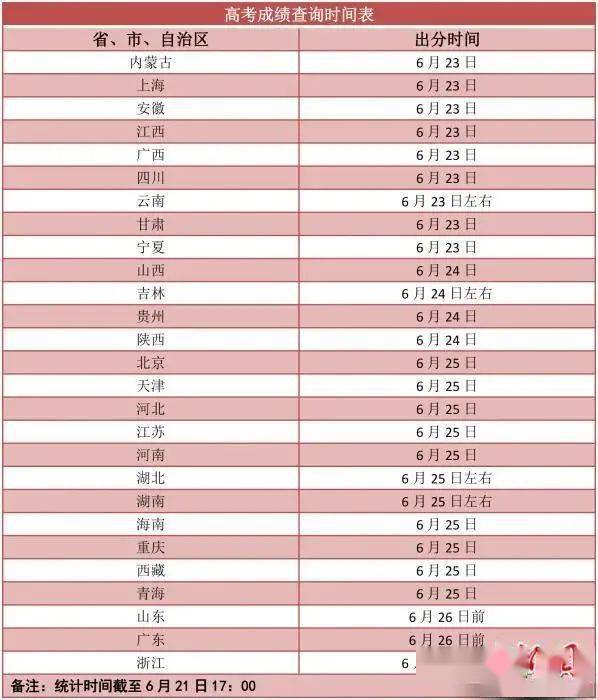The geopolitical threat eclipsed all positive economic forecasts for Russia, making the Ruble a ‘reluctant victim’.
As tensions with Ukraine and the threat of sanctions from the West become permanent, monetary instruments and bonds become a “sensitive” point of the Russian economy.
 Central Bank of Russia. (Source: TASS) Reluctantly “the victim” The Russian local currency has fallen more than 3% in the past month, currently trading at about 76 rubles for 1 USD. The sharp slump took the Ruble hard, in one of the most severe of any emerging market’s leading currency. Analysts expect the ruble to rebound in 2021 after falling 16% last year due to the Covid-19 pandemic and falling oil prices. While the Russian economy is reviving, the country’s Ministry of Economy has just revised its growth forecast to 3.8% last week and Russian businesses are rushing to capitalize on the stock boom to sell. stocks, ruble will be an important instrument signaling the health of the economy in the strained relationship with the West which has not seen a stop. Russian economist Sofya Donets at Renaissance Capital said, “Geopolitics is what is driving the movement of money markets – especially concerns about tougher sanctions from Washington, which have caused too much. damage to the Russian economy in recent years, before the situation is “hot” gradually at the border with Ukraine “. Sharing the same view, BlueBay Asset Management strategist Timothy Ash asserted: “Obviously at the moment, geopolitical concerns are having a big impact on the Ruble.” In it, a clear indication of the Ruble’s sensitivity to potential diplomatic changes is the possibility of an immediate upstream rise, following a phone call between US President Biden and his counterpart. Russia Putin. The White House said Biden had expressed “concerns about Russia’s sudden military build-up in Crimea and on the Ukrainian border, and urged Russia to de-escalate tensions.” Recent worries have also aroused in the Russian government bond market – a most likely target as the United States imposes sanctions in response to the international cyberattack SolarWinds, in which Moscow is alleged. to interfere in the 2020 presidential election or the poisoning and imprisonment of opposition leader Alexei Navalny. “Weapons” counterattack In fact, US sanctions against Russia have already severely affected the Ruble and government bonds. However, analysts said that this new move will not have a significant negative impact on the Russian budget and market in the long term, because Russia has already prepared. In retaliation for the cyber attack, the White House said that President Joe Biden had ordered the expansion of existing restrictions on US banks dealing with the Russian government, expelling 10 diplomats and punish 32 individuals. However, shortly after the sanctions were issued, the Russian Ministry of Finance announced its decision to cut 875 billion Rubles ($ 11.45 billion) in the 2021 loan plan compared to the previous plan of 700 cuts. billion Ruble. Initially, Russia plans to borrow 3,700 billion rubles with OFZ bonds (Russian government bonds issued in rubles) by 2021. In response to the US sanctions, Russian Finance Minister Anton Siluanov said the new sanctions mean that US banks will miss opportunities, at the same time, said the demand for bonds Russian government remains at a high level. And Russia will carefully study the market conditions when deciding whether to add more OFZ in the coming weeks. To avoid the risk of being forced to sell bonds by foreign investors, the Russian Ministry of Finance will cut the 2021 loan plan more than expected and will only provide new OFZ bonds from June 14 – the day after US banks will then be banned from buying ruble government bonds directly from Russia. The share of international banks, pension funds and international wealth managers among OFZ bond holders has declined over the past several months. At the end of March, foreigners’ share among OFZ holders fell to 20.2%, the lowest level since August 2015. However, Russian state-owned banks such as Sberbank and VTB have guaranteed to replace foreign investors if necessary and help the Russian Ministry of Finance use OFZ bonds to cover the budget. According to statistics, US investors only hold about 7% of OFZ, with a value of less than 1 trillion rubles, lower than the amount of OFZ worth more than 4 trillion rubles held by Sberbank and VTB. Analysts expect the ruble to rebound in 2021 after falling 16% last year due to the Covid-19 pandemic and falling oil prices. Consensus to de-dollarize and reduce dependence Recently, President of the Federal Council (Senate) of Russia, Ms. Valentina Matvienko, noted that the Central Bank of this country and the government “at the behest of President Putin are still pursuing a policy of de-dollarization.” To date, the Russian Federation’s gold and foreign exchange reserves have become less dependent on the US dollar, and Russian investments in US government bonds have also fallen 30 times over the past 10 years. In a recent interview, the President of the Federal Council stated the reason, the dollar, of course, will not disappear anywhere, it is and will be widely circulated, not prohibited from use. . But reducing dependence on a financial center is the right policy and the Russian Parliament supports it in any way possible, since it is a matter of the sovereignty of the country. Earlier, Russian Deputy Foreign Minister Sergei Ryabkov also affirmed that Russia should reduce its dependence on USD, which must be done due to the risk of potential new US sanctions. Recently, Russia has been constantly taking steps to consolidate the ruble, increasing its attraction to businesses and its citizens and this is bringing about significant results, as the Ruble appears more and more in the investment transactions and trade exchanges.
Central Bank of Russia. (Source: TASS) Reluctantly “the victim” The Russian local currency has fallen more than 3% in the past month, currently trading at about 76 rubles for 1 USD. The sharp slump took the Ruble hard, in one of the most severe of any emerging market’s leading currency. Analysts expect the ruble to rebound in 2021 after falling 16% last year due to the Covid-19 pandemic and falling oil prices. While the Russian economy is reviving, the country’s Ministry of Economy has just revised its growth forecast to 3.8% last week and Russian businesses are rushing to capitalize on the stock boom to sell. stocks, ruble will be an important instrument signaling the health of the economy in the strained relationship with the West which has not seen a stop. Russian economist Sofya Donets at Renaissance Capital said, “Geopolitics is what is driving the movement of money markets – especially concerns about tougher sanctions from Washington, which have caused too much. damage to the Russian economy in recent years, before the situation is “hot” gradually at the border with Ukraine “. Sharing the same view, BlueBay Asset Management strategist Timothy Ash asserted: “Obviously at the moment, geopolitical concerns are having a big impact on the Ruble.” In it, a clear indication of the Ruble’s sensitivity to potential diplomatic changes is the possibility of an immediate upstream rise, following a phone call between US President Biden and his counterpart. Russia Putin. The White House said Biden had expressed “concerns about Russia’s sudden military build-up in Crimea and on the Ukrainian border, and urged Russia to de-escalate tensions.” Recent worries have also aroused in the Russian government bond market – a most likely target as the United States imposes sanctions in response to the international cyberattack SolarWinds, in which Moscow is alleged. to interfere in the 2020 presidential election or the poisoning and imprisonment of opposition leader Alexei Navalny. “Weapons” counterattack In fact, US sanctions against Russia have already severely affected the Ruble and government bonds. However, analysts said that this new move will not have a significant negative impact on the Russian budget and market in the long term, because Russia has already prepared. In retaliation for the cyber attack, the White House said that President Joe Biden had ordered the expansion of existing restrictions on US banks dealing with the Russian government, expelling 10 diplomats and punish 32 individuals. However, shortly after the sanctions were issued, the Russian Ministry of Finance announced its decision to cut 875 billion Rubles ($ 11.45 billion) in the 2021 loan plan compared to the previous plan of 700 cuts. billion Ruble. Initially, Russia plans to borrow 3,700 billion rubles with OFZ bonds (Russian government bonds issued in rubles) by 2021. In response to the US sanctions, Russian Finance Minister Anton Siluanov said the new sanctions mean that US banks will miss opportunities, at the same time, said the demand for bonds Russian government remains at a high level. And Russia will carefully study the market conditions when deciding whether to add more OFZ in the coming weeks. To avoid the risk of being forced to sell bonds by foreign investors, the Russian Ministry of Finance will cut the 2021 loan plan more than expected and will only provide new OFZ bonds from June 14 – the day after US banks will then be banned from buying ruble government bonds directly from Russia. The share of international banks, pension funds and international wealth managers among OFZ bond holders has declined over the past several months. At the end of March, foreigners’ share among OFZ holders fell to 20.2%, the lowest level since August 2015. However, Russian state-owned banks such as Sberbank and VTB have guaranteed to replace foreign investors if necessary and help the Russian Ministry of Finance use OFZ bonds to cover the budget. According to statistics, US investors only hold about 7% of OFZ, with a value of less than 1 trillion rubles, lower than the amount of OFZ worth more than 4 trillion rubles held by Sberbank and VTB. Analysts expect the ruble to rebound in 2021 after falling 16% last year due to the Covid-19 pandemic and falling oil prices. Consensus to de-dollarize and reduce dependence Recently, President of the Federal Council (Senate) of Russia, Ms. Valentina Matvienko, noted that the Central Bank of this country and the government “at the behest of President Putin are still pursuing a policy of de-dollarization.” To date, the Russian Federation’s gold and foreign exchange reserves have become less dependent on the US dollar, and Russian investments in US government bonds have also fallen 30 times over the past 10 years. In a recent interview, the President of the Federal Council stated the reason, the dollar, of course, will not disappear anywhere, it is and will be widely circulated, not prohibited from use. . But reducing dependence on a financial center is the right policy and the Russian Parliament supports it in any way possible, since it is a matter of the sovereignty of the country. Earlier, Russian Deputy Foreign Minister Sergei Ryabkov also affirmed that Russia should reduce its dependence on USD, which must be done due to the risk of potential new US sanctions. Recently, Russia has been constantly taking steps to consolidate the ruble, increasing its attraction to businesses and its citizens and this is bringing about significant results, as the Ruble appears more and more in the investment transactions and trade exchanges.





























































You must log in to post a comment.